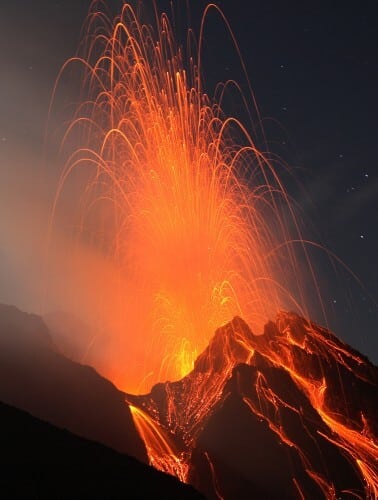The device that will be installed on a British Airways plane will send researchers in the UK critical data that will help form an accurate map of volcanic activity around the world

Scientists from the British Meteorological Office (Met Office) have developed a volcanic ash detector capable of detecting minute amounts of ash in the atmosphere. The activity of the detector is part of a large-scale study aimed at predicting volcanic activity and preventing severe flight disruptions such as those that occurred in 2010, following the severe volcanic eruption in Iceland.
The device, which was nicknamed "Zeus", was mounted on a British Airways Boeing 747, and these days it already collects data on its many flights around the world. In the coming year, the device will collect information at any given moment and from every point in the atmosphere where the plane is located, and will transfer it directly to the researchers of the British Meteorological Service for processing and analysis.
The idea for developing the "Zeus" device is the result of an experience of a pilot in a research plane, who noticed that in certain areas during the flight, his hair stood on end. The research team discovered that the phenomenon is the result of tiny volcanic ash particles that change the atmospheric balance and produce static electricity. From there, the idea was born to utilize the commercial aircraft platform for research and forecasting in the volcanic field.
Dean Plumb, a pilot at "British Airways" explained the move: "We are excited to take part in this innovative research, as we fully understand the tremendous contribution it has to the commercial aviation industry and to science. Airplanes regularly encounter small particles of volcanic ash safely, but pilots need expert help to avoid denser ash clouds, which could endanger flight safety. The "Zeus" system optimizes this process and provides a clearer picture of the distribution of volcanic ash throughout the entire atmosphere."
Ian List, head of the British Meteorological Bureau: "This is a very dramatic development in the field, and it reflects a collaboration of the utmost importance between two different industries. We are facing a long process, but already at the current stage of the project, the system provides significant results with a huge potential to change the face of the forecasting field."

2 תגובות
It's an experiment of course, if it succeeds it will be installed on more planes.
Are they satisfied with only plane 1? How expensive is the device? Because it would be better to spread these on all the planes in the world and map the ash clouds with a higher resolution, wouldn't it?
Beyond that, genius.